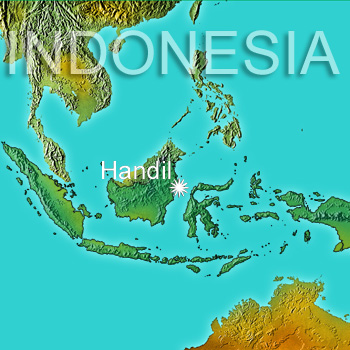Ocean conference: Not enough money for adapting to climate change
 Manado, Indonesia - Efforts to battle the effects of climate change are short billions of dollars in needed funds, experts at an international conference focusing on the effects of climate change on the world's oceans said Wednesday.
Manado, Indonesia - Efforts to battle the effects of climate change are short billions of dollars in needed funds, experts at an international conference focusing on the effects of climate change on the world's oceans said Wednesday.
Up to 1 trillion dollars are needed for mitigation and adaptation, said Al Duda, a water expert with the Global Environment Facility, at the World Ocean Conference held in Indonesia this week.
Only a fraction of the money was available, Duda said, suggesting a tax on ship fuel. "That would bring 10 billion dollars per year," he said. Unprecedented international cooperation was necessary to finance dealing with the effects of global warming, he said.
The GEF, which is supported by 178 countries and international organizations, has been financing environment initiatives and the introduction of sustainable development in developing countries since 1991 and claims to be one of the biggest providers of funding, bankrolling climate-change-related projects worth 200 million dollars.
"The World Bank and regional development banks started funds, too. They pledged 6 billion dollars last year, but as far as I know none of that has arrived," Duda said.
With rapid development of the carbon market, more funding for climate measures was available, even in poorer nations, said David McCauley of the Asian Development Bank. The market for trading of carbon dioxide emissions rose from 24 billion dollars in 2006 to 100 billion dollars last year.
Funds flow into developing countries as companies can finance climate protection measures there in order to partially reduce their obligations to reduce greenhouse gases.
The European Union plans to expand carbon trade to the shipping industry, Michael Koehler, chief of cabinet of the EU commissioner for maritime affairs, said.
The 27 EU members, together with 50 developing nations, also created a "Global Climate Change Alliance" that is to provide 5 to 10 billion euros (6.8 to 13.6 billion dollars) per year by 2020.
"We are ready to pay our fair share," Koehler said.(dpa)